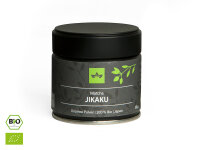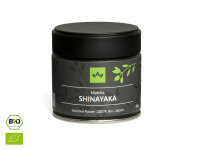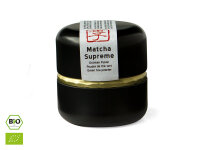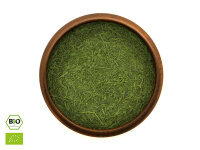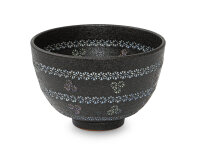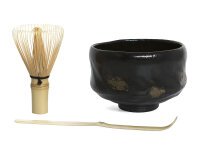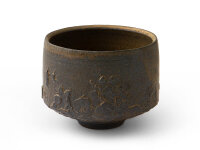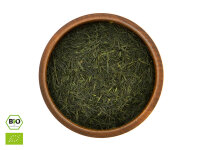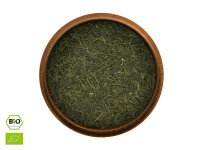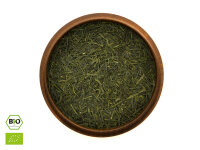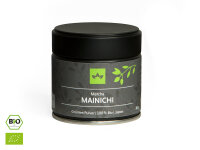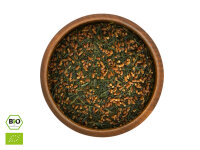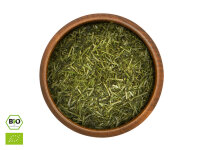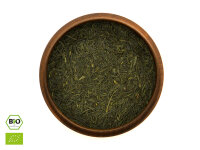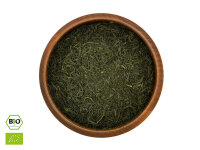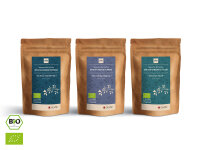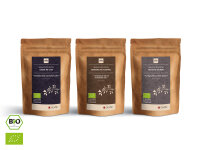"Organic Matcha Hananokaori, Ceremonial Grade, Super Premium"
Matcha Ceremonial Grade, a delight
This excellent quality grade of matcha is used in traditional tea ceremonies in Japan. Only relatively small quantities are intended for export, making it relatively difficult to obtain. However, Matcha is also finding more and more followers in Europe and in most Western countries - the healthy pick-me-up is becoming increasingly popular. Matcha is consumed as a warming, frothed beverage or as a cool, refreshing drink, as an addition to cooking, in ice cream and desserts. Matcha has an invigorating effect, stimulates the mind, as even the Buddhist monks recognized. But it also relaxes. This is mainly due to the rich theanine it offers. And matcha is considered very healthy - even healthier than green tea already is. The basis of matcha is tea leaves that have been shaded while growing. Shading promotes the formation of chlorophyll, theanine and caffeine. Bitter substances, on the other hand, are deliberately reduced to no more than slight notes of noble bitterness. After harvesting, the leaves are steamed, dried and broken. The coveted leaf tissue now separates from the leaf veins in the air stream. The leaf tissue, delicate, fine pieces, is called tencha and is the basis for matcha. In stone mills, specialists grind the powder from the Tencha, which means a high pleasure for more and more people.
The full variety of valuable ingredients
Green tea can significantly promote health. This has been proven in many studies. However, when green tea is infused, only the water-soluble substances can enter the tea water. However, those who enjoy matcha tea also absorb the fat-soluble fiber and vitamins. Furthermore, Matcha has significantly more caffeine than green tea, it comes very close to coffee, but the caffeine of Matcha is usually better tolerated. But stimulating he acts in any case, so that certainly moderate enjoyment is the best recipe.
Matcha from organic tea cultivation
The Tencha, from which our Matcha are obtained, is grown on the southernmost peninsula of Japan Kagoshima. On the organic farm, the fully shaded tea grows in an ideal, sub-subtropical climate. The organic farm completely avoids the use of chemical pesticides, which is particularly useful in the production of Matcha, since the Matcha connoisseur ingests the complete ingredients of the tea leaf or leaf tissue. Our Matcha masters in Japan pay special attention to a careful and gentle processing. After grinding, the Matcha is vacuumed, so that it retains its freshness for a very long time.
Organic certificate: JP-BIO-005 Japanese Agriculture
Store: DE-BW-039-05768-BC
Note
Please store matcha in a cool place. Protect from sunlight, moisture, oxygen and temperature fluctuations.

